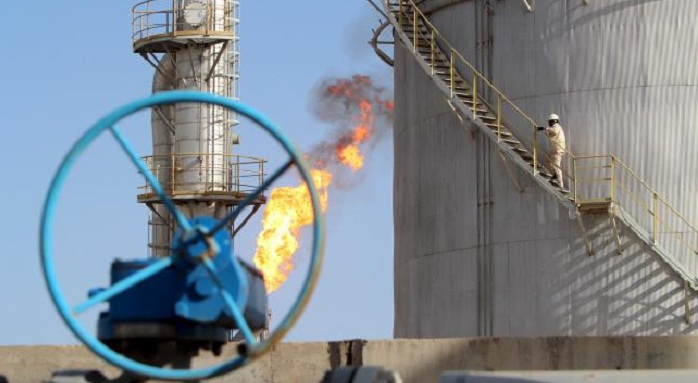Iran backs Oil producer freeze without pledging supply curbs

“If Iran’s not part of the deal, it isn’t worth much,” said Eugen Weinberg, head of commodity markets strategy at Commerzbank AG in Frankfurt. “After fighting to end sanctions for years and finally being free of them, why Iran would choose to put sanctions on themselves by freezing their production?”
More than a year since the Organization of Petroleum Exporting Countries decided not to cut production to boost prices, oil remains about 70 percent below its 2014 peak. Supply still exceeds demand and record global oil stockpiles continue to swell, potentially pushing prices below $20 a barrel before the rout is over, Goldman Sachs Group Inc. said last week.
Oil extended gains following the end of the meeting. Brent crude, the international benchmark, rose 5.7 percent to $34.03 a barrel on the London-based ICE Futures Europe exchange at 3:46 p.m. local time.
By merely capping supply rather than cutting it, the deal wouldn’t succeed in tackling the global oil glut, Goldman Sachs Group Inc. and BNP Paribas SA said.
Iran, which was the second-biggest producer in OPEC before sanctions were intensified in 2012, is seeking to boost output by 1 million barrels a day and regain market share. The nation should increase production by 500,000 barrels a day by March 20, the end of the Iranian calendar year, Shana reported on Wednesday, citing Roknoddin Javadi, managing director of National Iranian Oil Co.
“Any agreement will still be contingent on Iran being able to increase market share or increase production from current levels,” said Harry Tchilinguirian, head of commodity markets strategy at BNP Paribas SA in London.
The Doha accord was likely a token gesture from Saudi Arabia to Venezuela, which faces “deep financial pain” from oil’s slump and has lobbied hard for any agreement that will support prices, Tchilinguirian said. Unless producers agree to cut their output, the global oversupply will persist, according to BNP.
“Saudi Arabia is paying lip service to Venezuela’s efforts after they pushed so intensively,” said Tchilinguirian. “Does this change the supply-demand situation? No. By freezing at the high-water mark, you’re entrenching the surplus.”















































